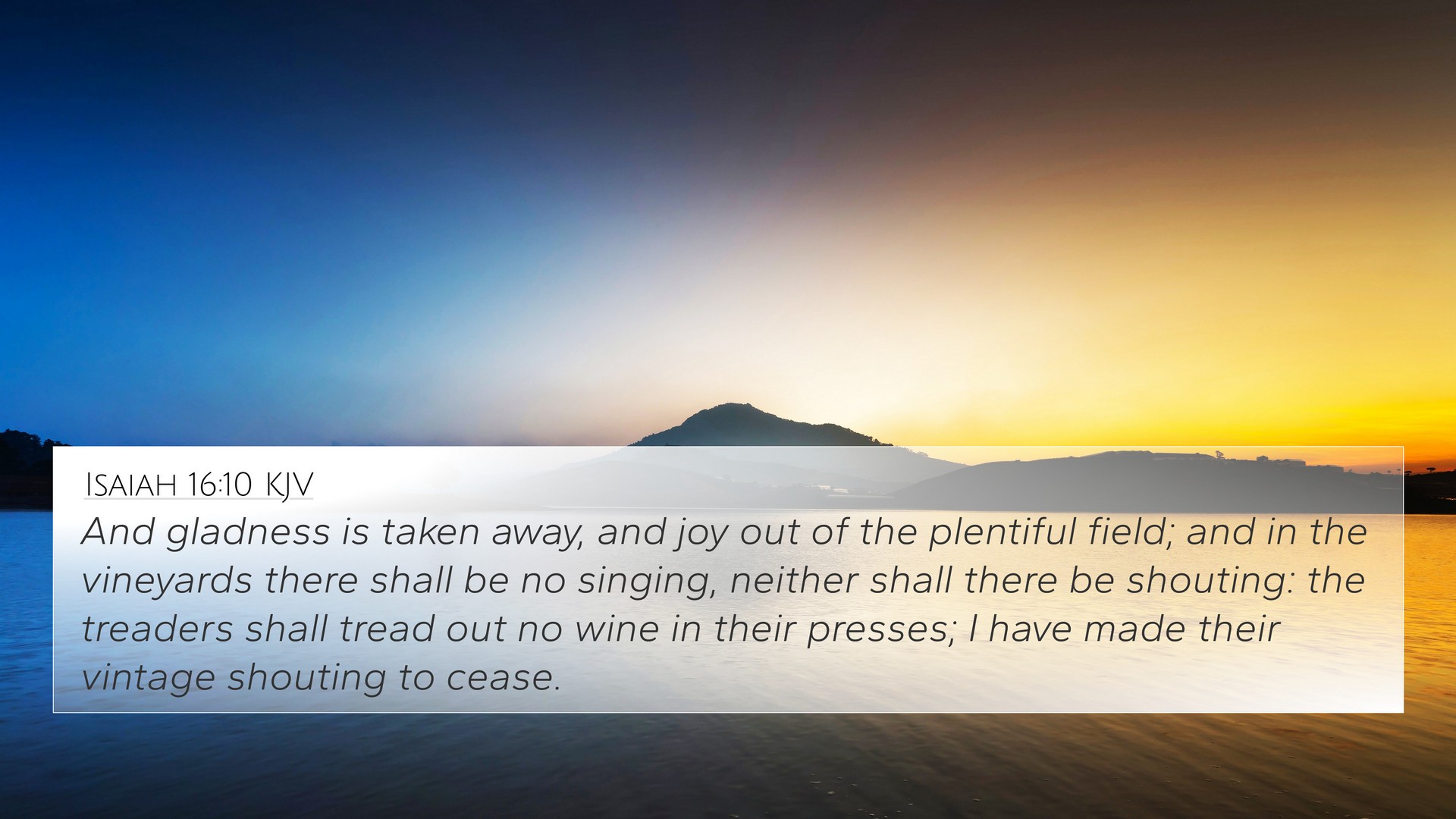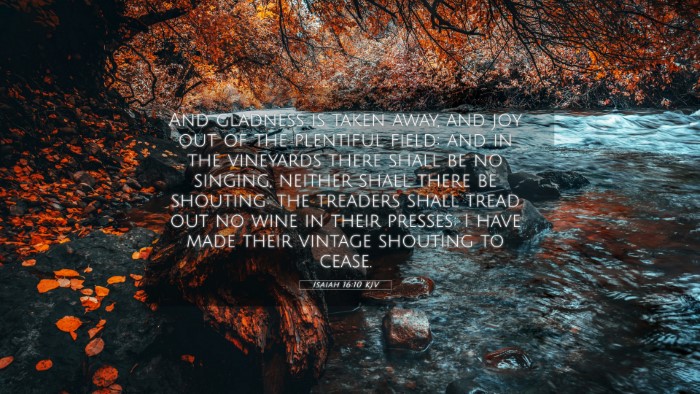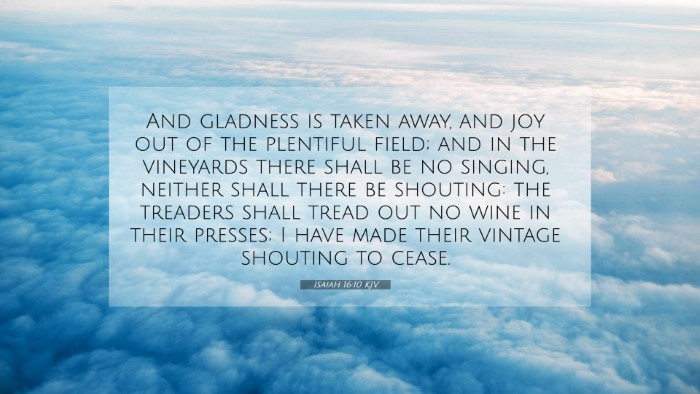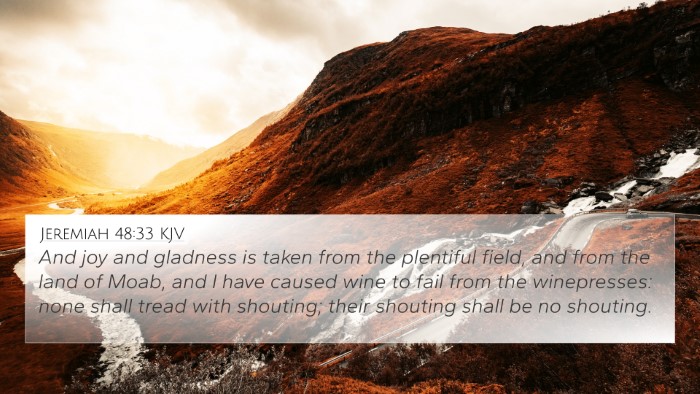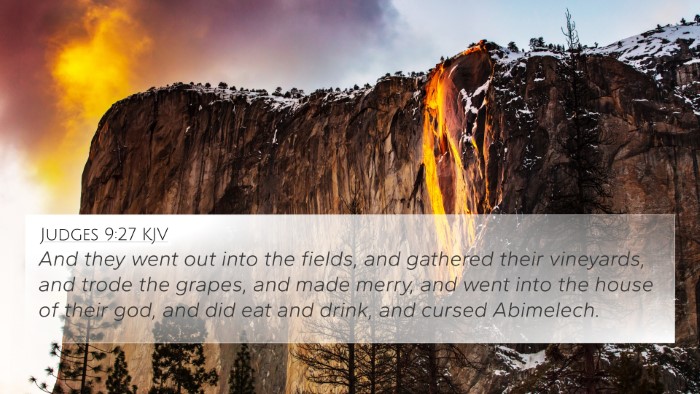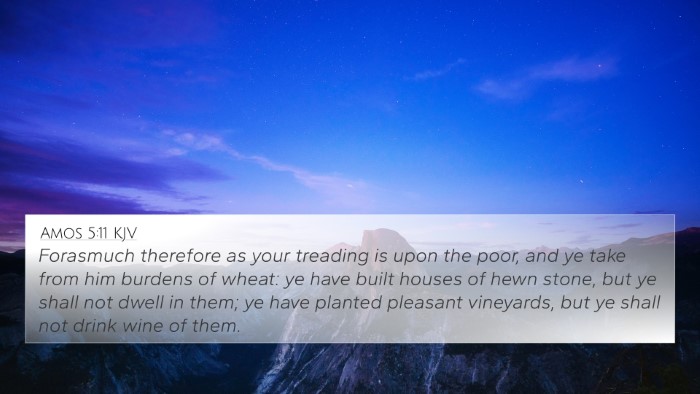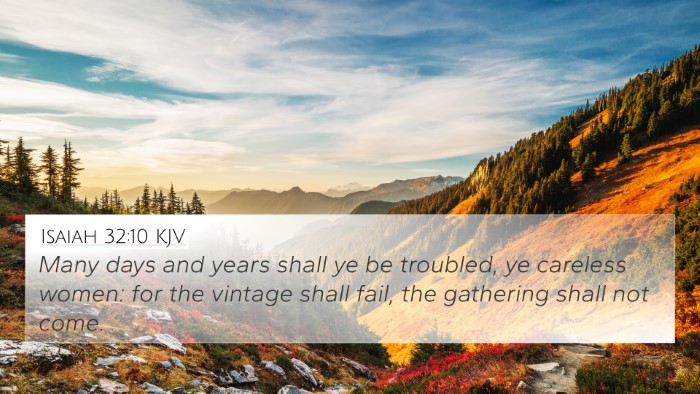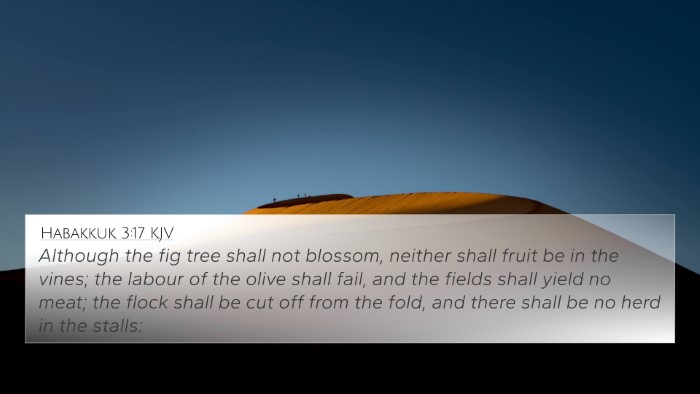Understanding Isaiah 16:10
Verse: "And gladness is taken away, and joy out of the plentiful field; and in the vineyards there shall be no singing, neither shall there be shouting: the treaders shall tread out no wine in their presses; I have made their vintage shouting to cease."
Overview of Isaiah 16:10
In this verse, the prophet Isaiah delivers a profound message regarding the desolation that comes upon Moab due to God's judgment. The expressions of gladness and joy being stripped away indicate the severity of the calamities faced by the people. The vineyards, typically symbols of prosperity and celebration, evoke a sense of loss and mourning when their customary joy is mentioned.
Insights from Commentaries
Matthew Henry's Commentary
Matthew Henry observes that the absence of joy in the fields and vineyards reflects not just a physical drought or lack of harvest, but a spiritual desolation that disrupts the community's life. The joyful celebrations that accompany harvest times are replaced by silence and sorrow, indicating the comprehensive nature of the destruction faced by Moab.
Albert Barnes' Notes
Barnes highlights the metaphorical implications of the vineyards, suggesting that they represent not just agricultural abundance but also the Jewish people’s covenant relationship with God. The loss of joy in such a significant aspect of life symbolizes the rupture of this divine connection, leading to a broader understanding of social and spiritual decay.
Adam Clarke's Commentary
Clarke elaborates on the cultural significance of wine and its association with happiness and social gathering. The silence in the vineyards serves as a stark reminder of God’s displeasure, serving as a warning to both Moab and Israel about the consequences of turning away from divine commandments.
Thematic Connections
This verse is packed with thematic depth and offers connections to various topics present in the Bible. Some of the noteworthy connections include:
- Divine Judgment: The cessation of joy and celebration is a recurring theme in scripture, often linked to moral decline and loss of favor with God.
- Importance of Community Rituals: The absence of singing and shouting in harvest celebrations emphasizes the significance of communal worship and gratitude.
- Symbolism of Vineyards: Vineyards are a common biblical symbol of abundance, joy, and covenant blessings. Their desolation signifies the loss of God’s blessings.
Related Bible Cross-References
To deepen understanding, the following Bible cross-references illustrate connections to Isaiah 16:10:
- Deuteronomy 28:47-48: Discusses blessings for obedience and corresponding curses, including the loss of joy.
- Jeremiah 48:33: Similar to Isaiah, it depicts Moab's' mourning and loss in vineyards.
- Habakkuk 3:17: Speaks of fruitlessness and disappointment yet maintains hope in God.
- Joel 1:10-12: The devastation of the land and loss of joy echoed in agricultural terms.
- Amos 5:16-17: Highlights the lamentation and mourning over the spiritual state of Israel.
- Lamentations 5:15: Reflects sorrow and loss of joy in community life.
- Matthew 9:17: Jesus compares new teachings to new wine, indicating the necessity of new forms of worship.
- Luke 5:37-38: Further explains the metaphor of wineskins and joy with the presence of Jesus.
- Philippians 4:4: Calls for rejoicing in the Lord despite circumstances, contrasting the desolation in Isaiah.
- Romans 14:17: Emphasizes that the kingdom of God is about righteousness, peace, and joy in the Holy Spirit.
Conclusion
Isaiah 16:10 serves as a poignant reminder of the realities of divine judgment and the consequences of turning away from God’s commands. The loss of joy, depicted through the silence in the vineyards, acknowledges the fundamental need for a connection with God that is celebrated in communal rituals. As we reflect on this verse, we are encouraged to explore the broader themes at play, examining our own lives and the joy that should stem from our relationship with God. By utilizing cross-references and thematic connections, we can deepen our understanding and allow these insights to guide our faith journey.
